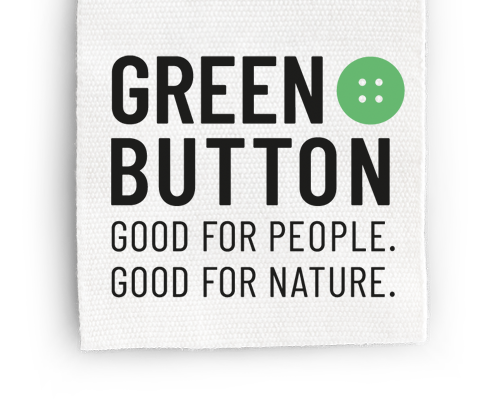3 Questions for
Christine Moser-Priewich & Florian Tiedtke | Green Button Secretariat
Christine Moser-Priewich and Florian Tiedtke form the management team of the Green Button Secretariat. Both have been part of the secretariat since the certification label was introduced and have helped to develop and refine the standard.

1. The centrepiece of the Green Button is the audit of corporate due diligence processes. What exactly does that mean and why is it so important?
Like the Supply Chain Due Diligence Act, the Green Button's requirements for corporate due diligence processes are based on international frameworks from the United Nations and the OECD. Green Button companies must prove that they take responsibility for their supply chains and take human rights risks into account. Unfortunately, human rights violations are not uncommon in textile producing countries.
Corporate due diligence describes an ongoing process: In addition to a company's clear commitment to its responsibility, this includes the analysis, prioritization, prevention and mitigation of risks. Effective grievance mechanisms for workers must be promoted so that risks can be identified and remedied. Remedial action must be taken in the event of damage. Companies must also report transparently on this process. The core idea of the due diligence approach is - and this is why it is so important - that both manufacturers and brands recognize human rights risks and work together to make improvements. It is not enough to simply pass on requirements to suppliers. Which risks are a priority is assessed individually for every company. The country context is included in the assessment, as well as the business model and purchasing practices of the brands and the conditions of the individual suppliers. Before a company receives the Green Button, independent certification bodies check whether the requirements for corporate due diligence are met.
2. Why do companies produce in countries where there are risks in the first place?
The textile industry is an important business sector in many countries and secures the income of many families. In Asia in particular, this has enabled positive developments in recent years. Jobs have opened up economic prospects for people and their social situation has also improved. Unfortunately, however, human rights are still being violated in many production countries. The challenge lies in improving production in high-risk countries in such a way that socially and ecologically sustainable production is made possible. The due diligence approach requires companies to work together with their suppliers on these improvements. Only if this does not lead to success and the risks become unmanageable, withdrawal is required as a last resort.
3. What does the Green Button require companies to do when they withdraw their orders from high-risk countries?
Breaking off business relationships can have serious implications, as it is always associated with the loss of jobs and income for the people in the country. In the textile industry, this affects women in particular. Responsible entrepreneurial action therefore also means that a possible withdrawal from a production country must be done conscientiously. Further damage to people and the environment must be avoided. If companies decide to withdraw on the basis of a risk assessment of the local situation, they must comply with mandatory Green Button criteria for responsible withdrawal. This includes, among other things, that companies give their suppliers sufficient advance notice of the withdrawal (in proportion to the order volume) and that potentially affected parties have the opportunity to report problems or incidents as part of the withdrawal.

